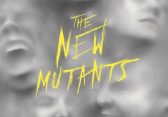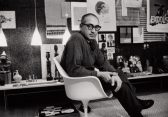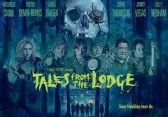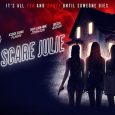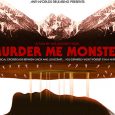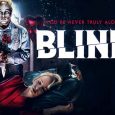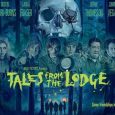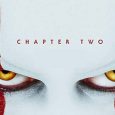Based on the novella of the same name from the collection Everything’s Eventual, 1408 stars John Cusack (High Fidelity, 2012) as Mike Enslin, a cynical and skeptical writer whose work consists of evaluating haunted places such as hotels, graveyards and the like whist usually debunking the mystery. Whilst writing his latest book, he travels to New York in an attempt to spend a night in room 1408 of The Dolphin Hotel, which is usually permanently unavailable to guests. The manager, Gerald Olin (Samuel L. Jackson; Pulp Fiction, Unbreakable) is reluctant to hand over the key, even offering a free upgrade to their best suite. When he realises that Enslin isn’t going to back down, he takes a more direct approach, and hands him the files listing over fifty cases of guests dying in the room. Still unperturbed, Olin eventually gives in, and allows Enslin to stay in the room. But over the course of the night, he discovers that guests can check in to the room, but they’ll never leave alive.
On paper, 1408 is your typical haunted house story but condensed into a single room; and for the most part, that’s exactly what it appears to be on screen. But scriptwriter Scott Alexander valiantly attempts to bring across aspects of the short story that made it unique, namely the inner turmoil of Enslin after losing his daughter. It’s a very hit and miss sub plot: yes, it’s clear to see what he was attempting, that the room plays on the characters utmost fears and nightmares, but it’s a narrative point that isn’t quite introduced as well as it should be, ultimately making it seem forced. However, the scene of Mike cradling his daughter only for her to crumble into ashes is heartbreaking and emotionally charged.

This is very much a one man show, so it was important for the lead actor to be watchable, regardless of the characters personality. There’s an unknown something about Cusack that I don’t usually like, but here he is the perfect casting choice. Before his night at The Dolphin, his dialogue drips of sarcasm and cynicism; maybe even to a point where you feel like he deserves everything that happens to him. These feelings are vanquished though when the room shows what it has to offer; the scares aren’t particularly shocking, but the sense of claustrophobia, uncertainty as to what could happen to Enslin and isolation more than makes up for what it lacks in jumps.
Samuel L. Jackson is in the film just long enough to be considered as a supporting actor and not a cameo, but (as always) he is on fine form. In one of the special features of the DVD, when talking about casting choices, Cusack says: “If the manager was a regular American or a sinister European and said ‘don’t stay in room 1408!’, you’d wouldn’t be too fussed about staying in 1408. But if Samuel L. Jackson tells you not to stay there, then you really shouldn’t”. It is indeed an inspired casting choice, and makes something as seemingly ordinary as a hotel manager appear menacing.
The theatrical ending to 1408 is severely disappointing and, like a lot of King adaptations, differs from the book. But I managed to get the Directors Cut version, and the closing scenes are dramatically altered, and it’s certainly for the best. The one seen in cinemas reeked of studio interference to please the masses, but with the DVD, it’s King fans turn to be satisfied. For those to wish to know what exactly is different, you can find it all here, a site which lists all the changes and has screen shots for visual aid.
To sum up, 1408 is a satisfying supernatural tale with strong performances from the very few that are involved. The room itself becomes a character, and it’s almost a battle of wits between it and Enslin to see who can triumph. It’s a slow starter, and the subplot of Enslin losing his family doesn’t work as well as probably intended, but overall it’s a thoroughly enjoyable adaptation.





